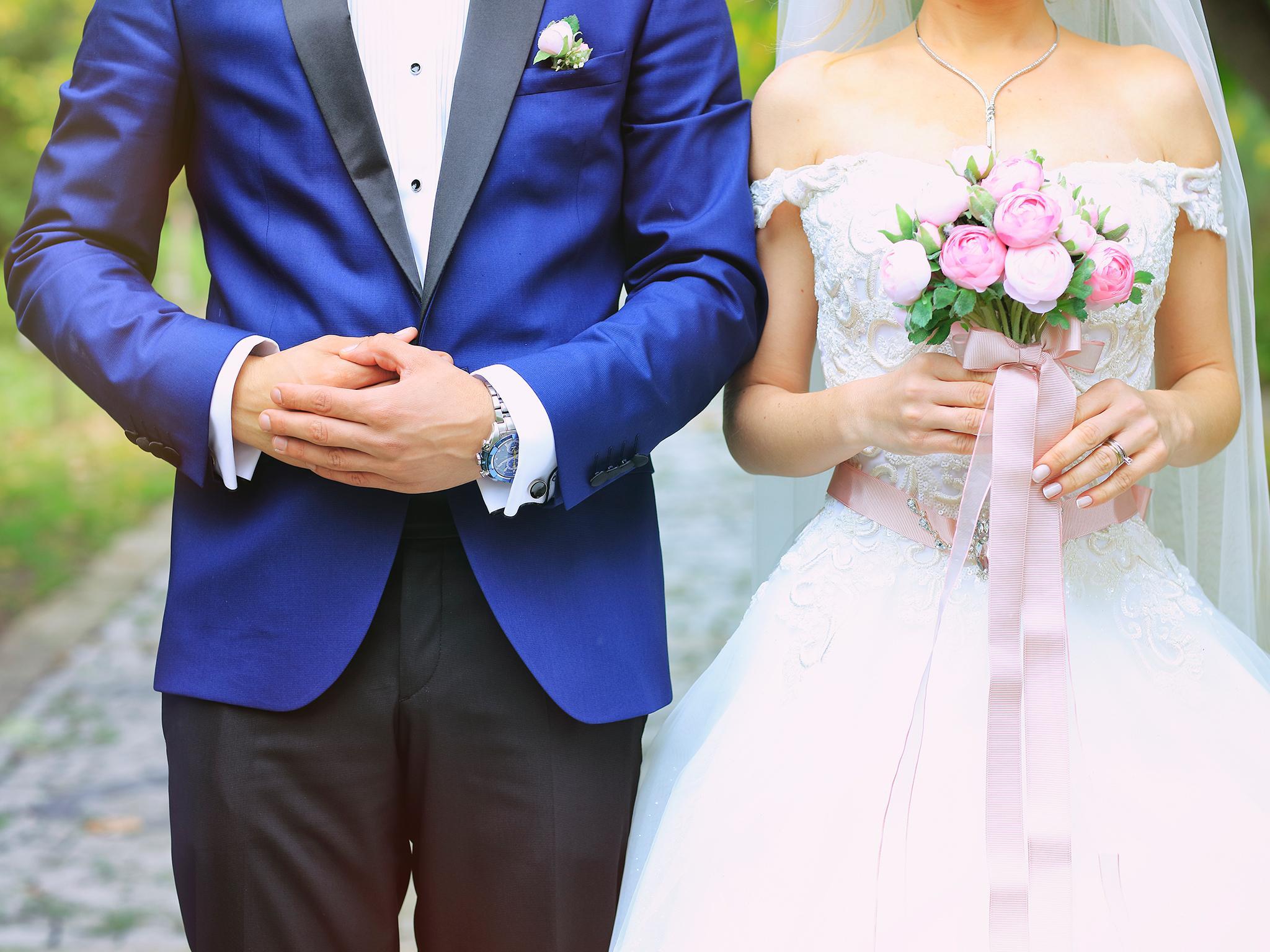Is it sexist for men to expect their wife to adopt their name?
'It kind of epitomises what's wrong with some parts of society'

Your support helps us to tell the story
From reproductive rights to climate change to Big Tech, The Independent is on the ground when the story is developing. Whether it's investigating the financials of Elon Musk's pro-Trump PAC or producing our latest documentary, 'The A Word', which shines a light on the American women fighting for reproductive rights, we know how important it is to parse out the facts from the messaging.
At such a critical moment in US history, we need reporters on the ground. Your donation allows us to keep sending journalists to speak to both sides of the story.
The Independent is trusted by Americans across the entire political spectrum. And unlike many other quality news outlets, we choose not to lock Americans out of our reporting and analysis with paywalls. We believe quality journalism should be available to everyone, paid for by those who can afford it.
Your support makes all the difference.We are well into the fourth wave of feminism, and believing in equality between men and women in terms of the law is well and truly mainstream. And yet, plenty of issues still need ironing out. Women are subject to rules on dressing a certain way at work that their male counterparts aren't, the gender pay gap shows little sign of closing, and the idea of men adopting women’s still makes some people baulk.
One large study 2013 into 13,000 brides found that 80 per cent of women take their partner’s last name, while research published in 2004 revealed that women have rejected using their partner’s name since the rise of feminism in the mid-1970s, but that trend began to slow down in the 1990s.
But actor Zoe Saldana and her actor husband Marco Perego-Saldana, who created a double-barreled surname with his wife’s, and actor Chris O’Dowd and journalist Dawn O’Porter, who added the prefix from her husband’s surname to her own, are among the most high-profile figures to experiment with their last names.
But does a man’s refusal to adopt a woman’s name really make him sexist? Some might argue that feminism should stretch beyond legislation into the most personal parts of our lives, including our names.
I took a straw poll of opinions on Facebook to see what people thought. It seems the issue is more complex than gender alone, particularly as marriage is now legal between same-sex couples.
One man in his thirties, who replied “of course” when asked if he identifies as a feminist, said: “Me and my wife have double-barreled ours together. How could I expect her to take mine if I wasn't prepared to do the same? I find it strange when people want to carry on their family name so staunchly, we're about moving forward and not harping back.
“I think it kind of epitomises what's wrong with some parts of society and this idea of maintaining identity is sort of holding us back from progressing as a human race," he added.
A woman in her thirties, who says she doesn’t identify as a feminist, took a different view. “I think I have just always assumed I'd go with tradition and I feel OK with that,” she said. But the problem of children adopting surnames chimed with many.
“My boyfriend has explicitly told me that he would never take my last name, if we ever get married,” said a woman in her twenties. “He would never force me to take his surname either, but would happily create a new last name with me. I find the issue comes, if we keep our own surnames, what would our children have?"
“I changed my name on everything except work) when I got married in 2009,” said another friend is her thirties. “Since then though neither of us can believe I did that!” said another “Motivations for doing it included wanting to have the same name as future children. If we were doing it over, I wouldn't expect him to change his name any more than he would expect me to change mine. We would both keep our own and double-barrel the kids.”
“I think it's sexist how assumed it is," argued another woman in her twenties. "But I don't think all men who want their wives to take their names are sexist. I think most of them just want the name to link up a new family unit rather than to show ownership of their wife in any way. And that's also why I think I will take my future husband's name. I want our children to have the same name as us, I don't like double surnames and if we took my name it makes tracing family history more complicated and disjointed."
What might highlight gender inequality in a relationship more than adopting a name or not, then, is how much controversy a partner's choices causes.
This is a perspective that Relate counsellor Arabella Russell highlights. Decided on the "name issue" is a one of the first tests a relationship might face, she says. “It's about managing our differences and having different views and beliefs is not uncommon.
"At the start of a relationship people focus on things like finishing each other sentences or being 'soul mates' or never disagreeing .But if you can navigate this you can navigate anything. Of course, issues with surnames can sometimes come down to upsetting traditional members of the family rather than any disagreement between the partners themselves.
She advises "Hearing if the other person is upset" but not allowing yourself to be informed by it. "Sometimes we don't want to be agreed with but understood. And sometime compromise arrise: and therein lies the double-barreled surname."
"Ultimately, it's about what works for the couple."
Join our commenting forum
Join thought-provoking conversations, follow other Independent readers and see their replies
Comments